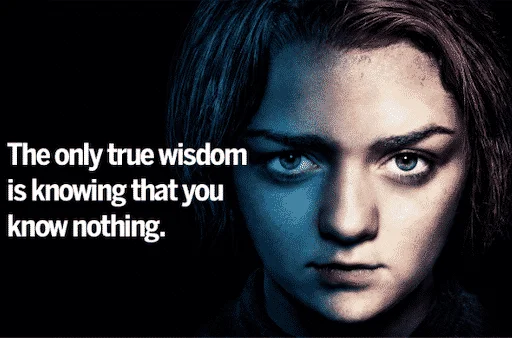In this week’s blog we are looking at the rest of those tricky TOK titles. Read on for some inspiration for your essay!
“Disinterestedness is essential in the pursuit of knowledge.” Discuss this claim with reference to two areas of knowledge.
The key element of this title is the term ‘disinterestedness’. Your essay needs to define this term and then examine it critically in the context of knowledge production.
I would argue that in this context ‘disinterestedness’ is a synonym for objectivity. Objectivity is the idea that you can step back and view something from a position which is not influenced by your own personal or cultural biases. Objectivity is very important in certain AOKs. Take the Natural Sciences as an example. Central to the methodology of the Natural Sciences is the idea that you can repeat and replicate an experiment. This replication means that you conclusions are not based on what you think the outcome should be, but rather what the evidence shows.
I would question, however, if objectivity is important for all AOKs. In the Arts, often the very personal ideas that have gone into the creation of a piece are vital to transmitting knowledge. If an artist has experience grief they may choose through their art to express that very personal experience. They would not be objective in creating a piece of work that chimed with everyone’s experience of grief.
In your essay, you need to consider such analysis of AOKs and determine whether objectivity is ‘essential’ for knowledge production. Even with my two basic examples above, it is obvious that it is not always. Your essay needs to pull your AOKs apart to find examples where disinterestedness is essential, and examples of where it is not.

(This experiment looks a lot nicer than the ones I did at school ngl)
“The production of knowledge requires accepting conclusions that go beyond the evidence for them.” Discuss this claim.
Out of all this year’s TOK titles, I think this one is the hardest to wrap your head around. The idea of something going beyond the evidence sounds a little wavy at first. However, it is actually quite an easy one to break down.
The question is asking you essentially whether you need to take a step beyond the most obvious conclusion to find the truth. Let’s take Biology as an example. When you shine a light on pondweed underwater, you will see bubbles start to form. If you take the evidence at face value, you’ll think that light makes pondweed bubble. If fact, what you need to do is use that initial evidence to find the real conclusion: that the plant is photosynthesising.
There are loads of different examples of people in history having to make this leap from face value evidence to more valid conclusions. Darwin is one very famous individual who took his observations and completely transformed science. If you want to do this question, I would recommend looking up paradigm shifts as a good starting point. I would also consider your WOKs more here; think about imagination, intuition, faith vs reason and sense perception and their role in helping us ‘go beyond the evidence’.

(Darwin not looking too happy about TOK)
“One way to assure the health of a discipline is to nurture contrasting perspectives.” Discuss this claim.
This type of questions comes up every year in TOK in some form or another. At its core, it is asking you to explore whether you need different points of view in an AOK for knowledge to develop.
To get to that question, however, you need to define a few things first. I’d start with ‘health of a discipline’. This could mean a number of things, but the easiest way to think about it is an AOK growing and refining its knowledge. If, for example, in economics a new theory was put forward and accepted by other economics, this would be improving its ‘health’.
The next thing you need to define is ‘contrasting perspectives’. Here, what the IB is getting at is different arguments within an AOK. Take literature (an Art) for example. When analysing one text, there will be multiple interpretations. Some critics will think the blue curtains mean the character is sad; some will think the curtains were just blue.
The way to tackle this question, therefore, is to consider whether AOKs need different arguments to develop. The structure I’d recommend therefore is:
- Define ‘health of a discipline’
- Define ‘contrasting perspectives’
- Reasons why contrasting perspectives are needed in your first AOK
- Reasons why contrasting perspectives are not needed
- And repeat for your second AOK.
Want some more help?
Hopefully this blog gave you some ideas about where to start with your essay! Check out last week’s blog for a break down of the first 3 titles.
We also have some of the best TOK tutors around, so click HERE to find out about our online TOK tuition.
Read part 3 – Knowledge questions and knowledge claims




